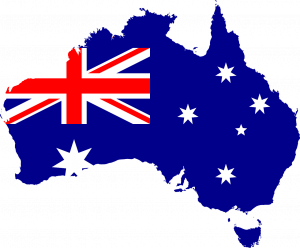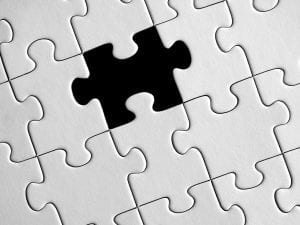I nearly kept up with the tweets last night, so this post has been published quicker than previous weeks.

Have you ever used Inquest records in your research? Have you found mention of an inquest in newspapers or a death record?
I have used inquest records in my research several times. In fact, my first inquest really stimulated my love of archives. I have never been so moved at reading the words of my husband’s ancestors.
Yes, of family members and also of others to develop an understanding of context, e.g. where/why did people commonly drown in the 1860s
have found a few inquests in my family where a death was an accident or where a family member was a witness at an inquest reported in a paper
Inquests are one of my favourite sources when researching my family history. Most of the inquests that were held in my family were reported in newspapers
I seem to have ancestors who died very ordinary deaths although my g g grandfather died in 1910 after being hit by a bicycle as he stepped off a tram in Queen Auckland and he had an inquest. That is the only one I have researched
I got disheartened with inquests when I discovered NSW destroyed inquest records when trying to find out about my grandfathers brother, Richard John Kitto. Since then I have not found any ancestors that appear to have needed an inquest.
In my professional research with my husband into fatal road accidents I read hundreds, maybe a couple of thousand, inquest files. That meant going to the Coroners’ Section to read the paper files, taking notes as we did in a systematic way.
I found an inquest record for my husband’s g g grandmother who took her life in Cornwall days after giving birth. The baby was baptised at the funeral. I would not have known she took her life but for the inquest.
Yes, I’ve discovered inquest reports for drowning deaths, and sadly burns. There is such unfiltered truth in the reports, can be difficult to read
What a real lack of foresight about records from NSW (picture grumpy face). What we have in Victoria is priceless #ANZAncestryTime – around 125K digitised freely available online up to 1920s or 30s (not sure), later can be consulted in person @PRO_Vic VPRS24
I have used a few inquest records which have helped to provide more context for some sad cause of deaths. Thrown from a horse drawn cart was the last one.
For UTAS writing family history I wrote one based on newspaper report of a murder inquest relating to my 3x great grandmother
I’m very grateful sometimes for Trove reporting inquests – easier to read than some of the contemporary handwriting, sometimes verbatim from the records
Two family members were the subject of inquests – a suicide and a drowning. Both were reported in the newspapers, so I could follow up with coroner’s reports. Some amazing details found.
I’m doing a sort of two suburb one time inquest study at the moment Margaret, into an Access database, but my notes field is already out of control, need to think of more fields!
Ooh, do they list the witness names in the archive catalogue or in Trove Sharn? One reason I’m trawling inquests at the moment is to see if I can surface family as witnesses
My great grandfather should have had an inquest as his death was very questionable. Four different accounts in the newspaper not to mention witnesses but it was decided not to conduct one unfortunately
I have found quite a few inquests about accidental deaths and farm and local business fires in newspapers. Rural newspapers often published these in great detail.
In the 70s I went to Massey. They were doing accident research related to drunk driving?? There must be so many records around that have be analysed, conclusions drawn and still in paper documents. Depending on copyright perhaps could be digitised.
I have picked up the current scrapbook and opened at a random page. “Speed blamed for fatal crash”, article on 23 Aug 2003 on the Coroner’s findings in Wellington. This was the Coroner we did research for.
BUT I haven’t looked to see if there are any inquests for any of my New Zealand family. I know of one Scottish one, my gggfather fell down a coal pit in 1881.
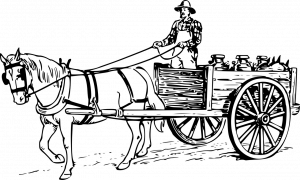
Have you found any anomalies when looking at different sources regarding a death ie inquest, newspapers, death certificate?
I’m not sure about anomalies….but certainly questions. I need to chase up no less than three inquests. One for Walter Richard (Dick) HINDE in Queensland, one for Emily FORFAR in the East Sussex Record Office and one for Ernest Eddie FORFAR in Canada.
no anomalies because I can’t find original inquest reports either destroyed or not available to view Sometimes the death certificate can be the first clue
Researching 1850s Melbourne at the moment & finding inquest records mostly more fulsome than newspaper reports but newspapers also do report verbatim. (If only BDM certs were free here like the Irish ones at this time!)
I’ve also looked at inquests held in the areas where my ancestors lived in the hope of finding witness statements given by my family members. I have surprised at how many of my family, though ordinary people, were witnesses
Recently I’ve started looking at inquests of residents of my One Place Study. They give great context to the lives of the people living there at the time.
brilliant idea Jennifer. I don’t think I’ve seen that suggested anywhere else (Alex speaking) – mind you – I have very little experience of One Place Studies.
I found that the death cert for my g g grandfather listed hemorrhage as cause of death while newspapers stated he was hit by a bicycle as he stepped off a tram and his inquest found he was crossing a street and was hit by a bicycle.
All the time. Spelling of names was a problem. Locations, descriptions of what happened. Reports were extremely variable. It has all improved with the passing of the Coroners’ Act 2006 – after my husband died.
NZ newspapers reported that my g g grandfather “sank and died” after being hit by a bicycle. The Inquest report was not so flowery!
Death of a man was reported in newspaper. My gGF was blamed. I read the coroner’s report @nswarchives. Witness statements were contradictory. But gGF was committed to asylum. Asylum records (access approved by NSW Health) revealed charges dropped
A lot of research & multiple trips to the State Archives. When dealing with inquest records you often have to give yourself time to digest what you’ve discovered. Family historians must be kind to themselves
yes that was something I learned I think in my UTAS course that these kinds of stories take their toll. Those that work in the AWM would need to take regular breaks from it all.
sometimes inquests reveal additional info about the family eg children whose births haven’t been registered, deaths that were never registered (not uncommon with early inquests). They can be very helpful.
one of the strangest deaths and inquests was that of one of “my” Dorfprozelten Germans who cut his throat from ear to ear. Seems like a hard thing to do. Coming from small villages they didn’t cope with an isolated life in the bush in 1860s Qld.
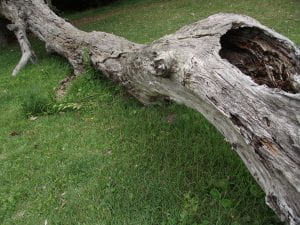
Tell us the story behind an ancestor’s inquest. Have you found something that shocked or surprised you in an inquest record?
oh yes…some very sad stories indeed. Two suicides which is always deeply distressing. The death of littlies is always upsetting. The account of Walter Richard HINDE being pinned by a fallen limb was also pretty gruesome.
I explained background of a few ancestor’s inquests in my article ‘Witnessing the Familial’ but I left out some key things I felt were too private to share, despite their happening 150+ years ago – see Helen’s posts for PROV
my husband’s grandfather died after falling at a quarry he fractured his skull and died in hospital my FIL found the report in the newspaper when we visited the local archive not sure how much he knew already
An ancestor died as a result of burns. The story goes that she was doing the laundry in an old copper and her clothes caught flame. The family always thought she died straight away, my research shows that sadly she lingered several days in hospital.
Ooh, I have one of those too, her apron that caught fire was a hessian sack. Very sad story.
So very sad Carmel, and this ancestor was a single mother, and such was the stigma, her child was not listed on her death certificate
Yep, I’ve winced at some of the nineteenth century treatments of burns, such as oil, or the always fruitless attempts at reviving the drowned
for many ancestors who were pioneers, medical assistance was not always readily available and horses were not as fast as modern ambulances.
my 2xG Grandfather’s inquest covered 2x broadsheet pages and included six (!) sermons from his churches on the following Sunday (he was Vicar of Sheffield). Also my father’s death was a carbon copy of his stroke a century later.
4xgGF Patrick Joyce’s inquest was reported in the newspapers. I was shocked to find out he fell & knocked himself out while trying to catch & hit his 12yo son for not bringing him breakfast The simple coroner’s register death reason didn’t capture this nuance
my g grandmother committed suicide and was found by her son she had refused to go to the hospital as didn’t want children to go to the workhouse consequently Grandmother went to Orphan home and her brother to another orphanage
I recently had to look up an inquest for a man killed by a horse. Witness statements disagreed according to newspapers but the coroner found that he was drunk and had hit the horse causing it to kick him
The damn demon drink 🙁 family history research has actually done quite a bit to turn me off alcohol. Even where intemperance isn’t the cause of deaths in inquests, many I’ve read make a point of stating the deceased was sober
I always think that disasters on or near Christmas are sad as future holidays remind the families of their lost relatives and friends. Tangiwai is definitely one of these.
Oh I know. I think about gggUncle Richard often. Inquest records are good for FAN research
A little girl is buried in our local cemetery. She was playing with her brothers around a campfire, and even though the mother came running and jumped into the creek with her daughter to put out the flames, she sadly died the next day.
So many sad stories like this from the past Annie. Open fires and old fashioned heaters were so dangerous
It’s good to have access to the inquests and newspaper reports, in order to have a better idea of the story than only what’s listed on the death record
Do you ever wonder if the coronial enquiries overlooked the possibility of murder or manslaughter? In our hot climate the pressure could be on to complete the process quickly.
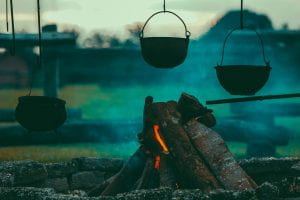
Share where you have found inquest records both offline and online.
Tassie’s inquests naturally are digitized and found on the Tasmanian Names Index at Libraries Tasmania Family history portal
Very grateful for the work of volunteers in indexing records for our state repositories, and for what @TroveAustralia enables too
Inquests and reports to the coroner South Australia archives.sa.gov.au/finding-inform…
Forgot to mention many of the SA ones have been digitised by Family Search but one needs to visit an affiliate library as they are otherwise locked records. Check if your local library has affiliate status with Family Search.
NSW inquest records are not all gone but it is pretty patchy. Here’s a reference for you https://www.records.nsw.gov.au/archives/collections-and-research/guides-and-indexes/inquests
I just found my fathers half uncle has a Coroners inquest report on Archway. Wondering, do I wait until I go to NZ and Archives has opened up or spend $25 getting a copy? Or should I cite the mass of other notes I have first?
Coroner’s Court of Victoria does provide support now coronerscourt.vic.gov.au/families
if you haven’t already I highly recommend listening to The Last Outlaws podcast. The 3rd episode What Remains of Joe Governor talks about his inquest & reveals why inquests were often held in pubs thelastoutlaws.com.au
I often find references to inquests in newspapers and then follow up at the archives. Sad, sobering stories.
I haven’t looked much. I come across reports in Papers Past for those covered in newspapers. I think I have had had only a handful of people I know personally in my research. One was someone I went to school with
Inquests can be found via Archway National Archives (New Zealand) – archway.archives.govt.nz
Most of the inquests in my family were in Victoria so I have obtained inquest files from @PRO_Vic They are now avail digitally online. Many were transcribed, often in full, in newspapers
My uncle obtained information from the Orphan Home about his mother which provided more background but most information I obtained from the newspaper reports inquests not available
I have been able to go into Qld State Archives to view inquest records which is really touching history. I will have to order my overseas inquest files and no doubt they will arrive as PDFs…not quite as exciting.
Inquests were also held for those who died in institutions even when death was natural causes. We have a couple of those
Blog posts about inquests
Helen writing for PROV: Inquest depositions, untimely ends,
Alex: Ernest Grieve, Walter Hinde, Eddie Forfar,
Sue: Murder at lodging house,
Jennifer: Inquests in family,
Pauleen: Well sinking, Lizzie Brophy,
Carmel: Was the horse guilty?,
Readers: Have you found out something interesting when reading an inquest?
